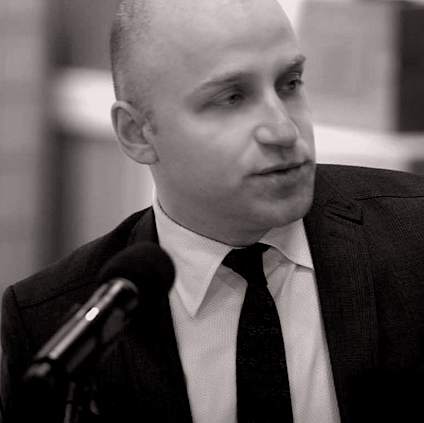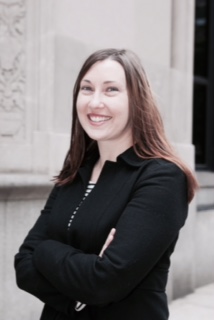PROGRAM
The indelible image of Aylan Kurdi, the 3-year old boy who drowned in Turkey’s Bodrum peninsula while fleeing along with his family members his home in Syria for a new life, finally caught the world’s attention about the movement of tens of thousands of migrants into Europe under dangerous conditions. Yet, this humanitarian crisis began much earlier than Aylan’s untimely death or the recent media reports of others being trafficked who perished in the Mediterranean or over land. Following unrest in countries like Syria, Iraq, Pakistan, and Afghanistan — as well as many African countries — Europe has seen a flood of refugees in the last decade, straining both its resources and the capacity of EU policymakers to reach a joint consensus on the question of refugees.
Discussions have emerged in the last few months about the fate of the EU as a politico-economic union of 28 member states, the future of the Schengen Agreement, which allowed the signatory states to abolish all internal borders in lieu of a single external border, and the ability of these states to mount a humanitarian response in the midst of the current refugee crisis.
Please join us on for a special event with experts who will discuss the past, present, and future of the refugee crisis in Europe, and the impact of the current humanitarian issue on institutions like the European Union. They will also explore the political context within which xenophobia targeting migrants has emerged in several states across Europe, and offer policy recommendations for EU members that can better accommodate the increasing number of refugees seeking shelter within its borders.
SPEAKERS
David Levy, Facing History and Ourselves
Elidor Mëhilli, Assistant Professor of History, Hunter College
Elidor Mëhilli is Assistant Professor of History at Hunter College. His work focuses on modern Europe, authoritarian regimes, and globalization, and he teaches courses on 19th and 20th century European history, international history, and dictatorships. He received a PhD from Princeton University and held a postdoctoral fellowship at Columbia University’s Harriman Institute (2011-2012) and a Mellon fellowship at the University of Pennsylvania’s Humanities Forum (2012-2013). He has also been a visiting fellow at the Zentrum für Zeithistorische Forschung in Potsdam, Germany (2012) and at Birkbeck College in London, United Kingdom (2014). His recent commentary has appeared in Quartz (qz.com) and The Conversation (theconversation.com).
Jenny Mincin, Deputy Director, Women's Protection and Empowerment Technical Team, International Rescue Committee
Jenny Mincin has been with the International Rescue Committee (IRC) since 2008 and is currently the Deputy Director in the Women’s Protection and Empowerment Technical Unit. As Deputy Director, Jenny has both internal and external facing responsibilities helping extend the reach of IRC programming and administration. She plays a key role in helping to chart future growth and strategic responses to an ever-increasing demand for the IRC’s services in preventing and responding to violence against women and girls in humanitarian settings. Jenny currently oversees the emergency response team, operations and grants team, and a large research project called What Works. Jenny was also a Regional Director at the IRC with US Programs where she directly managed ten offices in the Atlantic/Central Region with over 250 staff and multi-million dollar budgets as well as played a key leadership role on the senior team. As Regional Director, she was responsible for delivery of services to refugees for all program areas including case management, employment services, social adjustment, and health and wellness. Jenny worked on several projects including the Health and Wellness programming, core sector development, Program Framework, Harvard Health Assessment, Strategic Planning, and a study on refugee self-sufficiency. Jenny opened the Wichita office, helped implement a social work placement program (that she still runs in the Women’s Technical Unit), and is an active mentor in the Barnard College Women’s Leadership program.
Jenny has over twenty years of experience in the government, non-governmental, and academic sectors. Prior to joining the IRC, she was a recognized specialist in disaster human services, vulnerable and special needs populations that included women’s issues as well as being a leader in advancing policy in the area of special needs and disaster service delivery and community rebuilding/recovery. Jenny has worked with and for FEMA, Department of Homeland Security, HHS, HUD, and international, state and local governments. She was a former Director for Human Services at Nassau County Office of Emergency Management, Manager for City of New York (OEM and DOH) including for the 9/11 Crisis Counseling program Project Liberty and response. She has worked on several local disasters and crises as well as federally declared disasters such as September 11 terrorist attacks, 2003 Blackout, and Hurricanes Katrina and Rita, as well as serving as a member of the Special Needs team for the post-Katrina housing program in New Orleans, The Road Home. Jenny got her start as an Assistant HIV Counselor working with post-partum women and their children at the Peter Kruger Clinic/Beth Israel Medical Center in lower Manhattan.
Jenny has a PhD in Social Welfare Policy and a Masters of Philosophy in Social Welfare Policy from the Graduate Center CUNY. She also has an MPA from Columbia University School of International and Public Affairs and received her BA from Barnard College/Columbia University in Religion and Environmental Science. A native New Yorker (Queens to be exact), Jenny has two delightful children Emma and Enzo.
John Palattella, Literary Editor, The Nation
John Palattella is the literary editor of The Nation. He has written for numerous publications, including the The Nation, the London Review of Books, and The American Scholar. He is a former poetry editor of The Nation and the co-editor of Reporting Iraq: An Oral History of the War by the Journalists who Covered It.
Shyama Venkateswar, Roosevelt House Public Policy Institute at Hunter College
Teresa Woods, Associate Director, Refugee Representation Project
Teresa Woods is the Associate Director of the Refugee Representation Project (RRP) at the Cardozo Law Institute in Holocaust and Human Rights (CLIHHR). Working with Yeshiva University’s Ferkauf School of Psychology, the RRP provides holistic legal services to asylum seekers in the United States. With a focus on trauma, the Project seeks to heal the wounds that individuals coming out of conflict zones have sustained. Through this healing, the Project aims to give the clients it serves a chance to become contributing members of society and to restore their human dignity.
Ms. Woods has worked on issues of forced migration and refugee protection both at home and abroad. As a Senior Program Officer with the Center on Immigration and Justice at the Vera Institute, Ms. Woods worked on a national federally-funded legal services program for immigrants in detention. Prior to that, Ms. Woods did Refugee Protection work as a Resettlement/ Durable Solutions Officer with the United Nations High Commissioner for Refugees (UNHCR) in Tanzania, Cambodia, Nepal, and Costa Rica. After law school, she worked with CLINIC (Catholic Legal Immigration Network, Inc.) providing legal representation to asylum seekers detained upon arrival to the United States.










